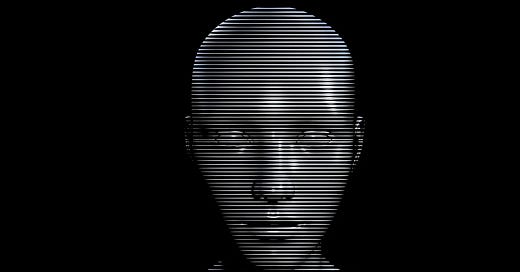This morning, I came across a great example of how inaccurate AI can be, possibly due to the bias and inaccuracy of the news media it relies upon; or maybe because the people training it consciously feed it biased, incomplete, information to ensure that it furthers their favored narrative; or maybe both.
This morning, I was reading about the ceasefire that the Trump Administration brokered on Friday between the Democratic Republic of Congo and Rwanda. An AP story about the same ceasefire deal describes the history of the Congo/Rwanda conflict this way:
“The conflict can be traced to the aftermath of the 1994 genocide in Rwanda, where Hutu militias killed between 500,000 and 1 million ethnic Tutsi, as well as moderate Hutus and Twa, Indigenous people. When Tutsi-led forces fought back, nearly 2 million Hutus crossed into Congo, fearing reprisals.
Rwandan authorities have accused the Hutus who fled of participating in the genocide and alleged that elements of the Congolese army protected them. They have argued that the militias formed by a small fraction of the Hutus are a threat to Rwanda’s Tutsi population.
[T]he ongoing conflict in east Congo has killed 6 million people, in attacks, famines and unchecked disease outbreaks stemming from the fighting.”
In other words, it’s kind of a big deal. In fact, it’s deadliest conflict of the 21st century so far.
But it wasn’t the AP story that took me to the AI piece. Instead, it was another story about the Congo/Rwanda ceasefire, in an outlet called LifeZette, that led me there. The LifeZette piece picked up on the remarks of Congolese journalist, Hariana Veras, who personally thanked President Trump for intervening in the conflict during Friday’s White House news conference announcing the deal. Varas also said that Congo’s President, Felix Tshisekedi, is considering nominating President Trump for a Nobel Peace Prize for his administration’s role.
That made me recall hearing that the Pakistani government recently nominated Trump for a Nobel Peace Prize, for his role in a May ceasefire arrangement in a conflict between India and Pakistan. Anyone who is interested can read an after-action report on the conflict, here, describing it as “the most significant between the two nuclear-armed adversaries in several decades.”
Looking for more details on the India/Pakistan ceasefire and Trump’s role in it, I entered the search phrase “Peace agreement between India and Pakistan” into my Google search bar. That popped up an AI summary that told me, “While the US has claimed some role in mediating the talks, both India and Pakistan maintain that the ceasefire was agreed upon directly.” Below that, under the heading, “US involvement,” the AI piece states, “Despite India and Pakistan’s claims, the US has asserted a role in mediating the talks, with President Trump taking credit for the ceasefire.”
So, Trump is claiming credit for the India/Pakistan ceasefire, but both parties to the dispute, India and Pakistan, deny that the U.S. and/or Trump had any role in it? There goes that Trump again, right?
The AI piece sources to two stories from May 10, 2025: one in an Indian outlet, the Hindu Times, stating that India claims it reached the agreement with Pakistan without any mediation; the other, a CNN story that states Islamabad “praised US involvement” while India denied any US involvement.
In fact, a further search reveals that, on June 21, 2025, Pakistan formally nominated President Trump for a Nobel Peace Prize for his role in bringing about the ceasefire, after the two nuclear powers exchanged ballistic missile fire and otherwise attacked each other back-and-forth in May. In fact, a June 23 AP story quotes a Pakistani Government tweet on X, announcing the nomination, as praising Trump’s “decisive diplomatic intervention and pivotal leadership” in the matter.
That makes the AI bit quoted above just flat-out false. Even according to the CNN piece that the AI bit references as a source, Pakistan was already praising US involvement way back on May 10. But clearly, after Pakistan nominated President Trump for a Nobel Peace Prize and praised his intervention and leadership in the matter on June 21, there can be no legitimate argument that Pakistan disputes President Trump’s important role in bringing about the ceasefire. So how does the AI bit end up asserting that Pakistan declares that Trump and the US had no role in it? Perhaps because AI, at least on matters of news and politics, is simply all about molding perceptions, just like the media from which it selectively sources its information.
When it comes to AI: Do not trust, just verify. Beware the owners of the means of mass communication. They lie.





AI is whatever its creators want it to be. I don't know where people get the idea that AI somehow rises, both intellectually and ethically, to higher levels than we mere mortals.